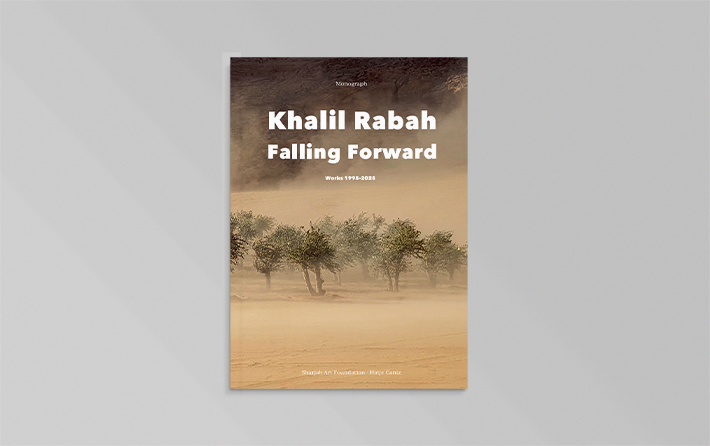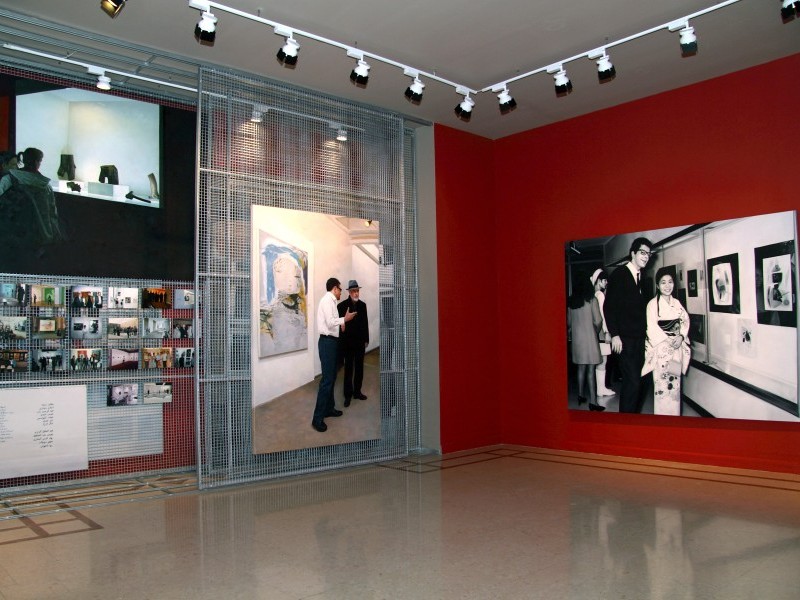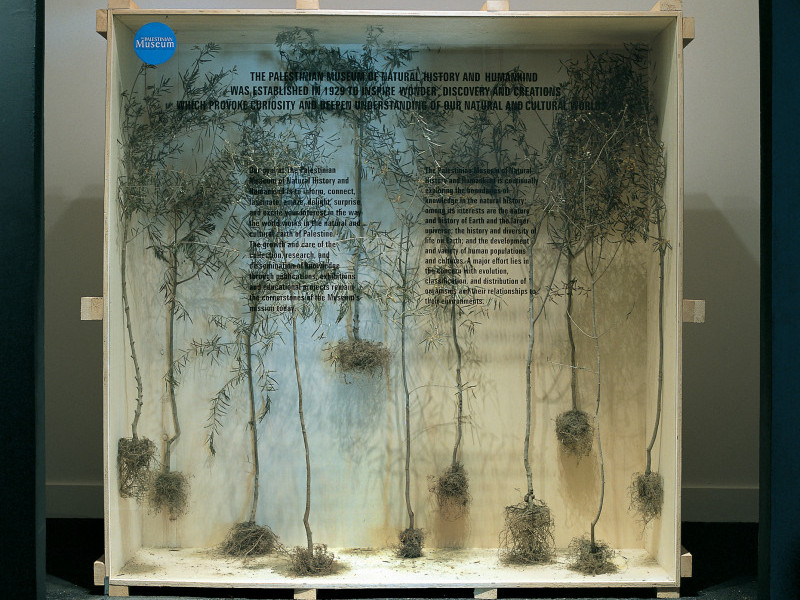

Publication Details
Khalil Rabah: Falling Forward / Works (1995–2025)
Anthony Downey, ed.
Monograph
Hardcover
548 pages, 332 illustrations
16.5 x 23.5 cm (6.5 x 9.25 in)
English
Co-published by Sharjah Art Foundation and Hatje Cantz
2022
ISBN 978-3-7757-5405-7
Preview
Overview
How do cultural institutions and art practices respond to long-standing states of national and international emergency? Khalil Rabah’s artistic practice investigates the future of visual arts production under such conditions. Exploring the relationships between historically sanctioned and experimental exhibition settings, fictional and documentative narratives, and the histories of displacement, his methods not only propose but also produce speculative institutions. Edited by Anthony Downey, the artist’s first major monograph, Falling Forward / Works (1995–2025) presents a comprehensive selection of exhibition materials, previously unseen archival documents and detailed background notes on how Rabah’s methods relate to the broader themes in his work. The volume also introduces new critical writing from curators, authors and researchers on the interrelated subjects of anticipatory aesthetics, subterfuge and fugitive acts; mimicry and performativity; knowledge production; archival technologies; and, crucially, the politics of humour. The monograph includes essays by Chiara de Cesari, Anthony Downey, Tom Holert, Chrisoula Lionis, Hoor Al Qasimi, Khalil Rabah and Rasha Salti.

Rabah, Khalil
Khalil Rabah is best known for rewriting and inventing history. Emerging from his deep involvement and background in architecture, his works aim to provide an alternative vision that challenges public perceptions and expectations.

Khalil Rabah: What is not
Khalil Rabah: What is not is an exhibition of significant works by Khalil Rabah, created from the 1990s to the present, that propose speculative frameworks and platforms for exploring how cultural institutions, curatorial practice, museological discourse and critical knowledge operate under long-standing states of emergency and displacement.
